HISTORICAL ASSOCIATION – Ealing Branch
SPEAKERS’ PROGRAMME 2023-24
Meetings are usually held on the second Tuesday of each month at Ealing Green Church, W5 5QT, at 7.30pm, with the exception of the October meeting which takes place at Twyford School at 6.30 pm.
Please note that any changes to the programme will be notified on our website: www.ealinghistory.org.uk, by email and on local Facebook sites
2023
12 September – Professor Michael Clarke, Fellow of King’s College London, and Distinguished Fellow of the Royal United Services Institute, ‘Why Wellington won – and Napoleon lost – the Battle of Waterloo’
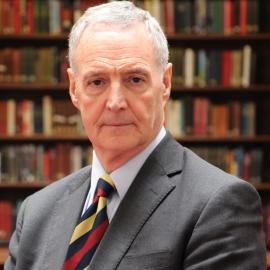 Professor Clarke specialises in defence studies and holds a number of professorial positions. He was Director of the Royal United Services Institute from 2007 to 2015. During the 2022 Russian invasion of Ukraine, he served as Sky News’ security and defence analyst. His most recent book (with Helen Ramscar) is Britain’s Persuaders: Soft Power in a Hard World (I.B. Tauris: 2021)
Professor Clarke specialises in defence studies and holds a number of professorial positions. He was Director of the Royal United Services Institute from 2007 to 2015. During the 2022 Russian invasion of Ukraine, he served as Sky News’ security and defence analyst. His most recent book (with Helen Ramscar) is Britain’s Persuaders: Soft Power in a Hard World (I.B. Tauris: 2021)
Battles can always go in very unpredictable directions and Waterloo almost did, on more than one occasion. Though Waterloo was not as strategically important as is often assumed, it was undoubtedly the most dramatic and ferocious battle the Duke of Wellington ever fought. It was not his best performance as a commander and yet, in the end, he prevailed. There were some very specific reasons for this, not least having a big share of luck. The lecture will discuss them.
Please register via Eventbrite link below. Those registering will be eligible for a post-talk recording:
10 October Dr Alexander Morrison, Fellow & Tutor in History, New College Oxford, speaking to the sixth-form evening at Twyford CoE High school, W3 9PP, on ‘War and Diplomacy in the Russian Empire, ca. 1850 – 1914’ (6.30pm)
 Dr Morrison is a historian of empire and of colonial warfare, with a particular focus on the Russians in Central Asia. Much of his work compares Russian and British imperial and military history. His focus has been on understanding the nuts and bolts of how Russian imperial rule functioned (or failed to do so) in 19th and early 20th-century Central Asia – the political and administrative history of Russian colonialism. In 2020 he published The Russian Conquest of Central Asia: A Study in Imperial Expansion, 1814–1914 (Cambridge University Press)
Dr Morrison is a historian of empire and of colonial warfare, with a particular focus on the Russians in Central Asia. Much of his work compares Russian and British imperial and military history. His focus has been on understanding the nuts and bolts of how Russian imperial rule functioned (or failed to do so) in 19th and early 20th-century Central Asia – the political and administrative history of Russian colonialism. In 2020 he published The Russian Conquest of Central Asia: A Study in Imperial Expansion, 1814–1914 (Cambridge University Press)
The Russian Federation’s political elite often presents itself as an ‘anti-colonial’ champion in opposition to the colonial domination of the West over the developing world. This lecture will explore the conquest and rule of Russia’s own colonial Empire in Siberia, Central Asia, the Caucasus and Crimea, and the reasons why in modern Russia there is effectively an allergy to describing any form of Russian rule over non-Russians as ‘colonial’. It will describe the systematic falsification of history in Russia under the Putin regime in this respect, and reflect briefly on how this is used to present Russia as a supposedly ‘anti-colonial’ power in the developing world today.
14 November Dr Sarah-Louise Miller, Visiting Scholar, Faculty of History, University of Oxford, Lecturer Defence Studies Department, King’s College London. Elizabeth Sunley Memorial Lecture ‘Wargame Women: The Women’s Royal Naval Service and the Western Approaches Tactical Unit During the Battle of the Atlantic’
Please register via Eventbrite link below. Those registering will be eligible for a post-talk recording:
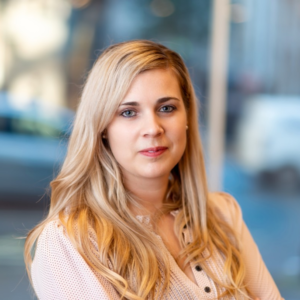 Dr Miller is a historian of war and conflict, specialising in the Second World War and the use of military intelligence. She is currently a visiting scholar at the University of Oxford’s Faculty of History, and is a member of Kellogg College, Oxford. She is also a lecturer in the Defence Studies Department at King’s College London. She is the author of The Women Behind the Few: The Women’s Auxiliary Air Force in British Intelligence During the Second World War (Biteback Publishing: 2023) She also appears regularly on British television, having featured on various history documentaries for the BBC, ITV, Channel 4 and Sky History. Sarah is particularly interested in recovering the missing history of women in intelligence work.
Dr Miller is a historian of war and conflict, specialising in the Second World War and the use of military intelligence. She is currently a visiting scholar at the University of Oxford’s Faculty of History, and is a member of Kellogg College, Oxford. She is also a lecturer in the Defence Studies Department at King’s College London. She is the author of The Women Behind the Few: The Women’s Auxiliary Air Force in British Intelligence During the Second World War (Biteback Publishing: 2023) She also appears regularly on British television, having featured on various history documentaries for the BBC, ITV, Channel 4 and Sky History. Sarah is particularly interested in recovering the missing history of women in intelligence work.
During the Second World War, around 800 women worked at Western Approaches. They worked under conditions of absolute secrecy, a hidden but vital component in Allied naval operations. Members of the Women’s Auxiliary Air Force and the Women’s Royal Naval Service worked tirelessly in the nerve centre of the Battle of the Atlantic, monitoring Allied convoy routes and shipping, protecting precious supplies and lives. This paper will focus on the Women’s Royal Naval Service at Western Approaches. Affectionately known as ‘Wrens’, these women worked to protect Allied shipping and made crucial contributions to the offensive against the enemy at sea. As is often expected of wartime military women, some worked in administrative and communications roles, and their work was critical to getting intelligence to commanders at sea who could make decisions and act on it. A hidden group of Wrens, however, were also involved in highly secret anti-submarine warfare operations, as analysts and wargamers. These young women constituted the main bulk of the staff in the Western Approaches Tactical Unit (WATU) and were highly trained in anti-submarine and naval warfare strategy and tactics. Studying U-Boat attacks and battle reports closely, they recreated the conflict at sea in wargaming simulations, helping to develop countermeasures that would be used successfully to tackle the grave threat posed to Allied shipping. The Wrens hosted seagoing naval officers for short training courses, and against all expectations, often defeated them in the battle simulations. Heavily involved in both the devising of anti-U-Boat tactics and the training of around 5,000 naval officers who would adopt them, these women made a significant contribution to the Allied effort in the Battle of the Atlantic. This talk will examine the work of the WRNS at Western Approaches, focusing on those in the WATU and placing their vital contribution in the wider context of the Battle of the Atlantic.
12 December AGM and Christmas Social
2023
9 January Professor Ryan Lavelle, Professor in Early Medieval History, University of Winchester, ‘Cnut the Great: King of the English’
 Professor Lavelle is an internationally recognised expert in Anglo-Saxon Winchester and King Alfred. He is the author of the award-winning book Alfred’s Wars: Sources and Interpretations of Anglo-Saxon Warfare in the Viking Age
Professor Lavelle is an internationally recognised expert in Anglo-Saxon Winchester and King Alfred. He is the author of the award-winning book Alfred’s Wars: Sources and Interpretations of Anglo-Saxon Warfare in the Viking Age
He is also historical advisor for the television drama series The Last Kingdom.
He is the author of Cnut, The North Sea King. Penguin Monarchs Series (Penguin: 2021)
13 February Professor Alexandra Walsham, Professor of Modern History, University of Cambridge, and Fellow of Emmanuel College, President of the Historical Association, ‘In the Shadows and under the Cross: Roman Catholicism in Early Modern England’
 Professor Walsham specialises in early modern Britain and in the impact of the Protestant and Catholic reformations. She is co-editor of Past & Present and Vice-President of the Royal Historical Society. She has recently taken up the position as President of the Historical Association. Her most recent book is Generations: Age, Ancestry and Memory in the English Reformations (Oxford, 2023)
Professor Walsham specialises in early modern Britain and in the impact of the Protestant and Catholic reformations. She is co-editor of Past & Present and Vice-President of the Royal Historical Society. She has recently taken up the position as President of the Historical Association. Her most recent book is Generations: Age, Ancestry and Memory in the English Reformations (Oxford, 2023)
This lecture will explore the religious, political and social challenges faced by Roman Catholics after the English Reformation and the creative responses and adaptations they made in order to maintain their prohibited faith. It will consider the government policies designed to extinguish it, the role played by missionary priests and laypeople in sustaining the ‘old religion’, and the forms of clandestine and covert piety that enabled Catholicism to survive in a hostile Protestant society in which its adherents were subject to persecution. The lecture will highlight some lively areas of historical debate, including the significance of exile, martyrdom, and outward conformity and the role of relics, ritual and material aids to devotion. It will demonstrate that the culture of minority Catholicism that developed in the British Isles must be understood in the context of the wider European and global Counter Reformation, to which, in turn, it significantly contributed.
12 March Professor Matthew Hughes, Brunel University, ‘The Arab Revolt in Palestine in the 1930s’
 Professor Hughes has lectured on Middle Eastern politics and military history both at home and abroad. His latest monograph on British counter-insurgency in Palestine in the 1930s entitled Britain’s Pacification of Palestine: the British Army, the Colonial State, and the Arab Revolt, 1936-1939 (2019, paperback edition 2020) published with Cambridge University Press was a ‘commended’ finalist for the 2019 Society for Army Historical Research Templer Medal Prize, was long listed for the British Army Military Book of the Year 2020.
Professor Hughes has lectured on Middle Eastern politics and military history both at home and abroad. His latest monograph on British counter-insurgency in Palestine in the 1930s entitled Britain’s Pacification of Palestine: the British Army, the Colonial State, and the Arab Revolt, 1936-1939 (2019, paperback edition 2020) published with Cambridge University Press was a ‘commended’ finalist for the 2019 Society for Army Historical Research Templer Medal Prize, was long listed for the British Army Military Book of the Year 2020.
Britain’s crushing of the 1936–1939 Arab revolt against Jewish immigration to and British rule in Mandate Palestine was at heart an administrative war by an Emergency State. Military search-and-sweep operations after 1936 played second fiddle to systemic (and systematic) politico-legal pacification of the whole country by undemocratic colonial government. The target was the people. Of the three variables determining victory or defeat in Palestine – insurgent action, British counter-insurgency military operations, and the colonial Emergency State – this Ealing HA talk argues that the last was the key to victory. The Arab revolt was a clash between disorganized insurgency versus well-organized colonial civil rule that drove forward pacification by collectively and legally punishing Palestinians. Powerful colonial legal-administrative
9 April Emeritus Professor Penny Corfield, President of the International Society for Eighteenth-Century Studies, ‘Who Formed Britain’s “New Aristocracy of Talent” in the Eighteenth Century – and What Did Their Advent Signify?’
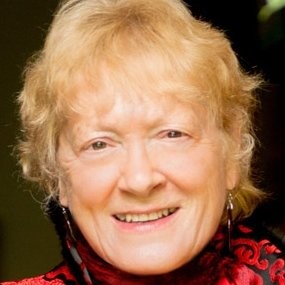 Penelope J. Corfield is Emeritus Professor at Royal Holloway, London University; and President of the International Society for Eighteenth-Century Studies (2019-23). She studies modern British history and also approaches to History as a discipline. Recent publications include The Georgians: The Deeds & Misdeeds of Eighteenth-Century Britain (Yale UP, 2022; pprbk 2023); and (with Tim Hitchcock) Becoming a Historian: An Informal Guide (University of London Press, 2022).
Penelope J. Corfield is Emeritus Professor at Royal Holloway, London University; and President of the International Society for Eighteenth-Century Studies (2019-23). She studies modern British history and also approaches to History as a discipline. Recent publications include The Georgians: The Deeds & Misdeeds of Eighteenth-Century Britain (Yale UP, 2022; pprbk 2023); and (with Tim Hitchcock) Becoming a Historian: An Informal Guide (University of London Press, 2022).
Georgian Britain was experiencing considerable social change, with the expansion of towns, trade and industry. In that context, a further indicator of changing cultural attitudes was seen in the multiplying chorus of calls for the traditional ‘Aristocracy of Birth and Blood’ to be replaced by a new ‘Aristocracy of Talent’. This illustrated lecture shows how a new ideal of Meritocracy was emerging, complete with debates as to how to find true social Merit – a theme with continuing topical relevance.
14 May Professor Marisa Linton, Professor Emerita, Kingston University London, ‘Robespierre and the French Revolutionary Terror’
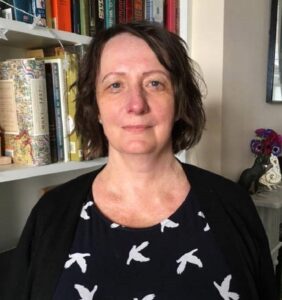 Marisa Linton is Emerita Professor of History. She taught for many years at Kingston University. She writes principally on the French Revolution, particularly on: the French revolutionary terror; leaders of the French Revolution, especially Robespierre, Saint-Just and the Jacobins; emotions in revolutionary politics; the role of women in politics and political culture. Her books include: The Politics of Virtue in Enlightenment France (Palgrave, 2001); Choosing Terror: Virtue, Friendship and Authenticity in the French Revolution (Oxford U.P., 2013); and, with Michel Biard, Terror: the French Revolution and its Demons (Polity, 2021). She has made appearances on TV and radio, and also works as a historical consultant, most recently for the 2022 series Dangerous Liaisons, currently showing on Starz/Lionsgate.
Marisa Linton is Emerita Professor of History. She taught for many years at Kingston University. She writes principally on the French Revolution, particularly on: the French revolutionary terror; leaders of the French Revolution, especially Robespierre, Saint-Just and the Jacobins; emotions in revolutionary politics; the role of women in politics and political culture. Her books include: The Politics of Virtue in Enlightenment France (Palgrave, 2001); Choosing Terror: Virtue, Friendship and Authenticity in the French Revolution (Oxford U.P., 2013); and, with Michel Biard, Terror: the French Revolution and its Demons (Polity, 2021). She has made appearances on TV and radio, and also works as a historical consultant, most recently for the 2022 series Dangerous Liaisons, currently showing on Starz/Lionsgate.
Maximilien Robespierre has often been portrayed as the sole mastermind behind the Terror in the French Revolution. Marisa Linton will show that the truth about both Robespierre and about the Terror was rather more complicated. She will examine why the revolutionaries set up laws that enabled terror, the dramatic spectacle around the guillotine, the role of the Revolutionary Tribunal, the National Convention, the Committee of Public Safety, and the Jacobin Club, and look at the impact of this time of intense fear on revolutionary leaders, many of whom fell victim to laws which they themselves had supported.
11 June Dr James Crossland, Reader in International History, Liverpool John Moores University, ‘Anarchists, Fenians, Nihilists!: London and the First “Age of Terror”, 1867-1909
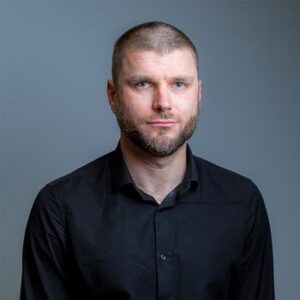 James Crossland is a Reader in International History at Liverpool John Moores University and the author of The Rise of Devils: Fear and the Origins of Modern Terrorism (Manchester University Press, 2023).
James Crossland is a Reader in International History at Liverpool John Moores University and the author of The Rise of Devils: Fear and the Origins of Modern Terrorism (Manchester University Press, 2023).
In this talk, James Crossland discusses the impact terrorist bombings and the fear of international radicals conspiracies had on London in the late Victorian and Edwardian era, prompting the creation of Special Branch, the world’s first bomb squad and, ultimately, the culture of secret policing in Britain.
Members (£15 annual fee) and Visitors (£5 per talk) Students free.
Secretary: Simon Cockshutt tel. 0208 579 9602 Email: simoncockshutt@btinternet.com
For up-to-date details: www.ealinghistory.org.uk
